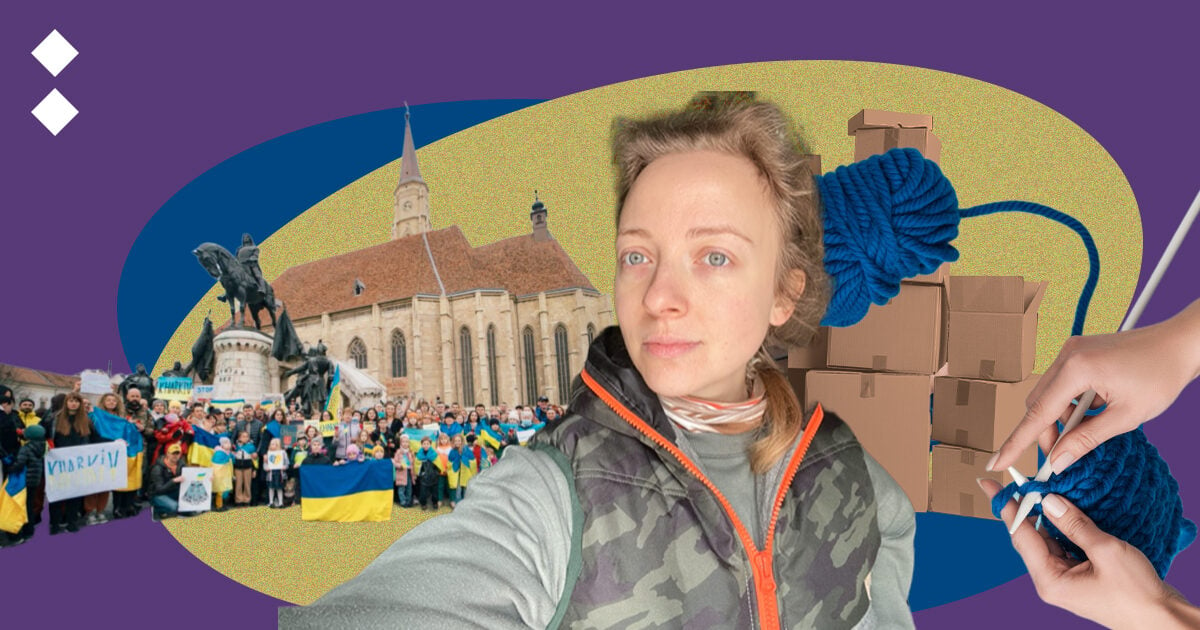
What's the problem?
Russia's ongoing war has changed the lives of Ukrainians forever. Since 2022, many had to flee their home to save themselves and their children. Fortunately, countries worldwide, including the European Union members, accepted Ukrainian refugees and gave them the need shelter.
Within the EU, Romania ranks eighth in the list of nations that accepted the largest number of Ukrainian refugees. As of today, nearly 78,000 Ukrainians live in this southeastern European country.
In February 2024, the humanitarian organization Save the Children Romania surveyed Ukrainian refugees. The poll found that besides financial difficulties, job searching, and language barriers, the main problems for those who found refuge in Romania from the war were homesickness and no friends and relatives nearby.
What's the solution?
In the northwestern Romanian city of Cluj-Napoca, refugees from different parts of Ukraine decided to establish the Ukrainian House. Assisted by a local community organization, this educational and cultural center provides humanitarian aid and undertakes educational initiatives. Ukrainian volunteers contribute by sharing their skills, organizing various events, and supporting each other.
Kateryna Yerska, a representative of the Ukrainian House in Cluj-Napoca, shared how the hub operates and brings together Ukrainian and Romanian communities.
How does it work?
"We try to find solutions for everyone"
Cluj-Napoca is an ancient city with a population of over 300,000. It is unofficially considered the capital of Transylvania, a region in central Romania known for medieval towns and castles, such as Bran Castle and the legend of Dracula.
"It's hard to say how many Ukrainians are currently here because many continue to live in two countries, constantly traveling back and forth," says Kateryna Yerska, the communications officer of the Ukrainian House. "Our community density is over a thousand people, and there are probably between 3,000 and 5,000 adults and children who received temporary protection in the city."
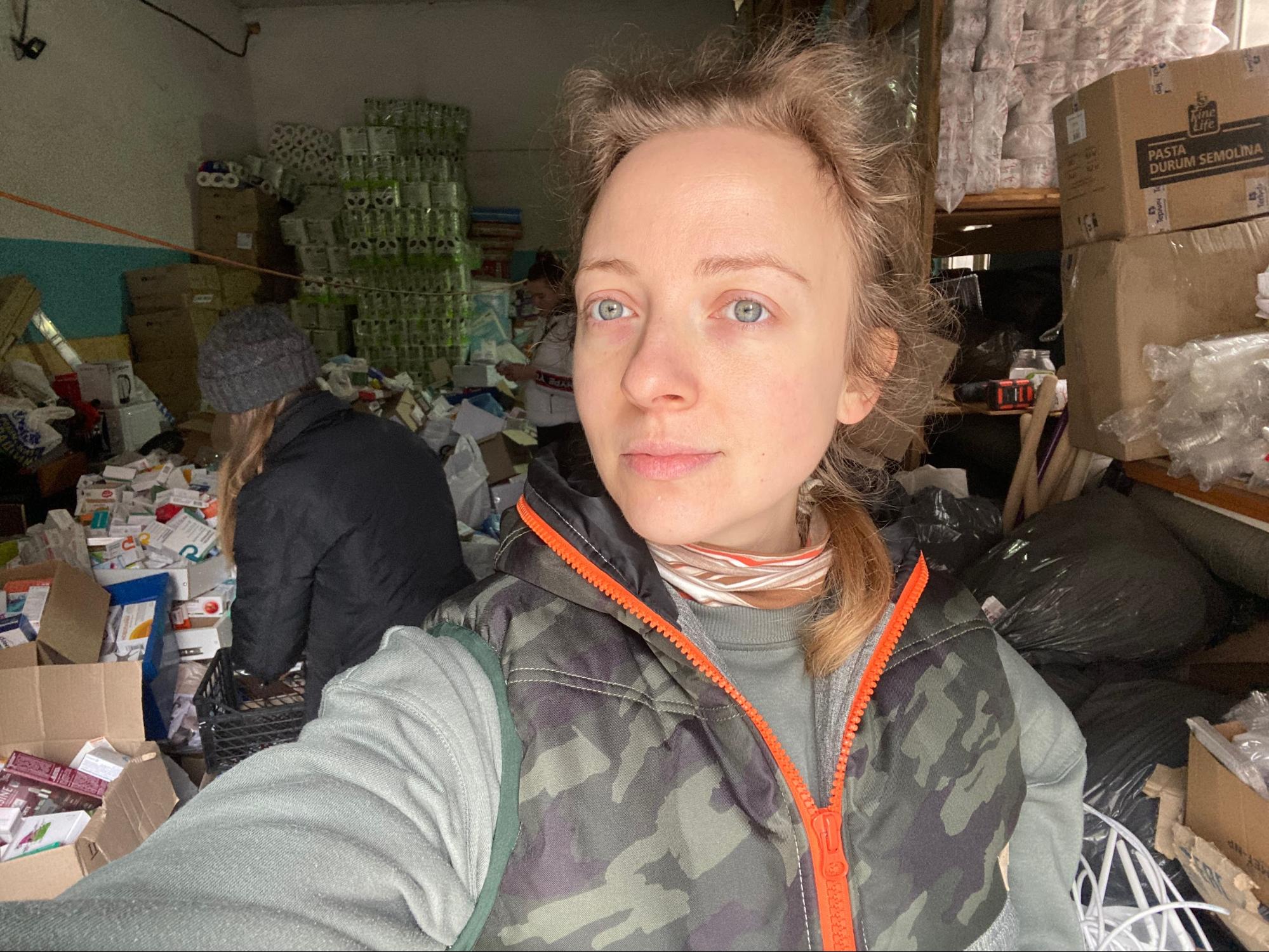
Kateryna Yerska in the Ukrainian city of Mariupol, which Russian forces have occupied since May 2022. Photo from Kateryna Yerska's archive
Kateryna is from Mariupol, a southeastern Ukrainian city. In mid-March 2022, she managed to escape from the blockaded city, where she worked in a volunteer center at the beginning of Russia's large-scale invasion. When street battles began in the city center, the humanitarian hub's staff decided to evacuate as further volunteer activities became life-threatening.
The next day, a Russian shell hit Kateryna's volunteer center. The evacuation car carrying her and other Mariupol residents was also shelled at a checkpoint of the so-called "Donetsk People's Republic" by one of the militants. Kateryna narrowly escaped — bullets flew over her head. After the evacuation, Kateryna Yerska settled in the southern city of Odesa and underwent rehabilitation and treatment. When Russia intensified its attacks on Odesa, she moved to Romania. Kateryna has been living in Cluj-Napoca for over a year now.
"Romanians and Ukrainians who lived in Romania at the beginning of the Russian invasion of Ukraine — students, workers, volunteers — united in the first days of the war. They dealt with the logistics of humanitarian aid routes, helped accommodate refugees, and rallied against Russian aggression," Kateryna Yerskare calls. "Many in Romania had relatives or friends, and they directed refugees to city volunteers. With time, the Ukrainian community began to gather on its own."
One of the organizations that provided assistance and engaged its volunteers from the very beginning was the Peace Action Training and Research Institute of Romania (PATRIR). In cooperation with the UN Refugee Agency, the local non-profit decided to help Ukrainians establish a familiar initiative abroad—the Ukrainian House. The community has its place for gatherings, events, organization, and even just leisure—a place where they speak the familiar language, where they can ask for advice on anything, and where they can talk about the latest news from home.
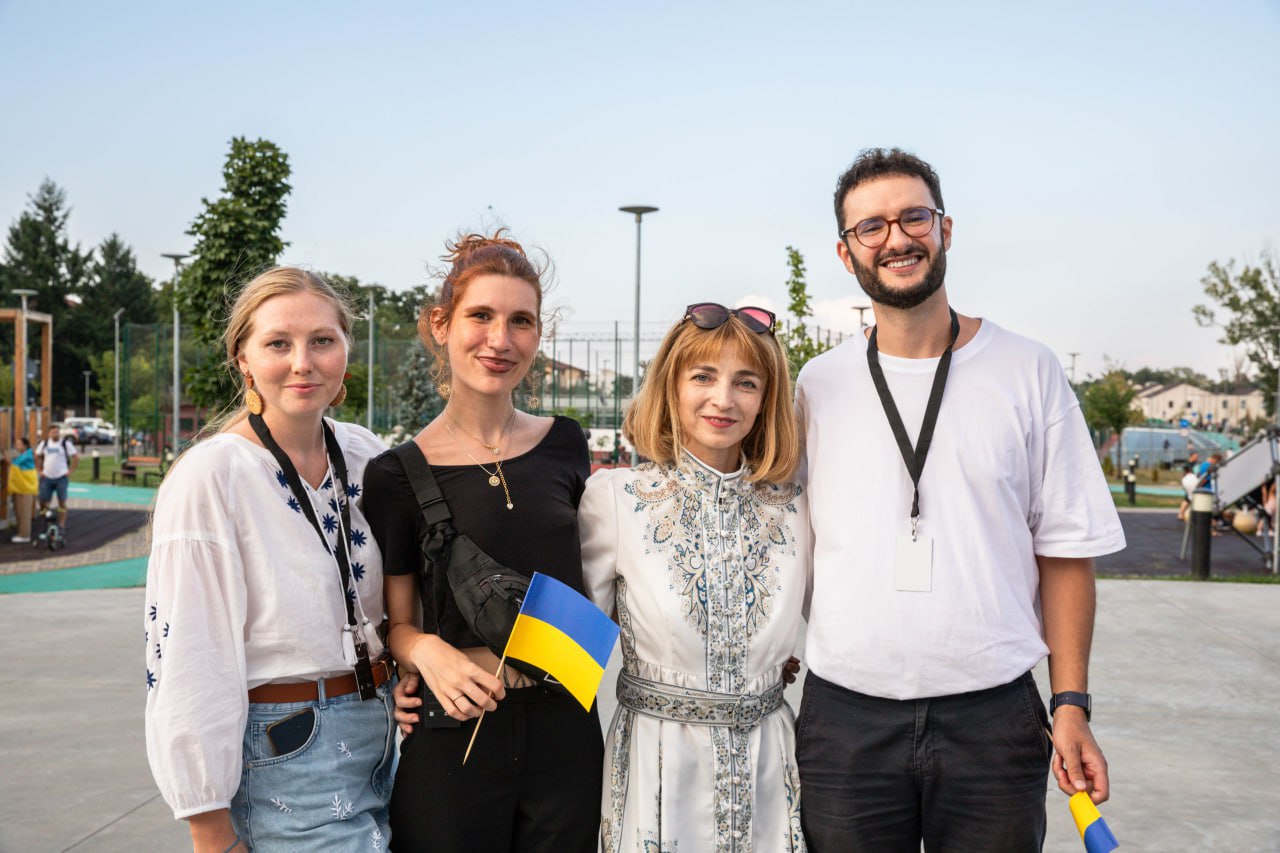
From left to right: psychologist Anna Denysenko, project coordinator Juliana (Yana) Niga, Iryna Komisarova from Mariupol, and project manager Cesar Moreira. Photo from the Ukrainian House archive
"It's symbolic that the girl who found a place for our Ukrainian House in the heart of Cluj two years ago still works on the project," says Kateryna Yevska, presenting Juliana Niga, the project coordinator of the Ukrainian House. Yana, the Ukrainian version of Juliana's name, speaks Romanian and English and is currently learning Ukrainian to communicate more with visitors. Yana's grandmother was born in Bukovyna, the southwestern historical region of Ukraine, so she is partially Ukrainian. During the full-scale war, Yana visited Ukraine, including Odesa.
At that time, intern doctor Anna Mokan also joined the Ukrainian center. Born in Ukraine, Anna enrolled at the University of Cluj, moving to Romania before the start of the large-scale invasion. She joined the team receiving and placing refugees in hospitals and went on humanitarian missions to Ukraine when the war started. Now, Anna also does official translations of documents for Ukrainians needed for medical visits.
In the first months of the war, refugees themselves joined the project. Iryna Komisarova, a teacher from Mariupol, still teaches Ukrainian kids online but devotes the rest of her time to coordinating events for the community in the Ukrainian House and communicating with visitors. Psychologists Anna Denysenko and Tetiana Bryzytska from the southern Ukrainian cities of Mykolaiv and Odesa also joined the project. They help Ukrainians in Cluj cope with the trauma of war.
"We have a very multinational team. Cesar Moreira, from Portugal, has become the project manager at the Ukrainian House in Cluj after working in the Middle East. We believe that the secret of such involvement of Ukrainians and locals lies in simplicity — we try to find solutions for everyone who turns to us," says Kateryna Yerska.
Magic of hands, talents, and hearts
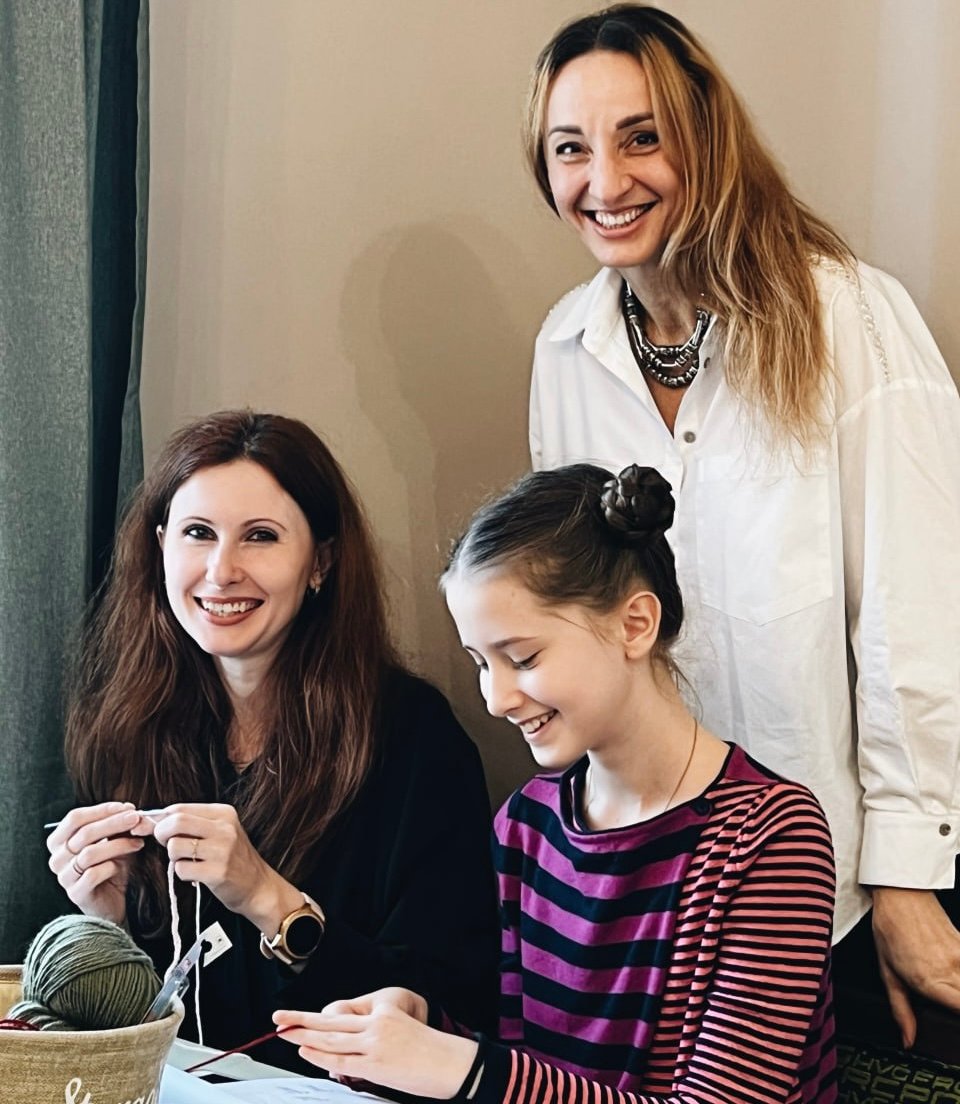
Joint event of Ukrainian and Romanian craftswomen. The organizer is Nadia Tryfonova (to the right). Photo from the Ukrainian House archive
Ukrainians carry out the lion's share of the Ukrainian House's activities. The center's pride is its permanent resident, the "Magic of Our Hands" craft club, organized by Nadia Tryfonova from Mykolaiv.
"By profession, I'm an accountant. I worked as a managing director of stores in Mykolaiv and Kherson, but I've been knitting since childhood. This has always brought me joy," Nadia Tryfonova shares. "Before the war, I was planning to resign because I planned to start my own business and knit professionally to create my knitwear brand. But the war changed things and the plans and dreams of all Ukrainians."
Nadia found herself with her five-year-old daughter in Romania, where she needed much time to adapt. As soon as she met the most immediate needs, she set out to find a craft store. After getting to know local craftswomen, Nadia was invited to a local festival of knitters.
"At this event, I met many craftswomen, including Ukrainians. Then, I heard that women want to knit but don't have the opportunity because they share one apartment with several families, and each has a different pace of life. It was hard to find a corner where you wouldn't disturb anyone," says Nadia Tryfonova. "This became the first impulse for me to bring craftswomen together. I thought: together, we will knit, help, cry, in short, support each other."
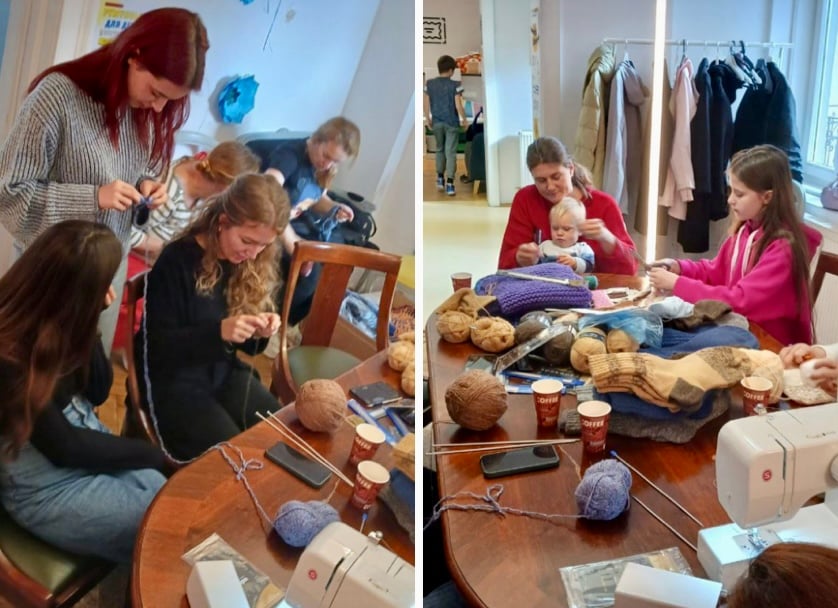
Participants of the "Magic of Our Hands" craftswomen club learn to knit socks. Photo from the Ukrainian House archive
The newly created Ukrainian House welcomed a club of Ukrainian craftswomen. At first, members knitted socks and donated the finished products to Ukraine, including to soldiers. With the support of the Ukrainian House, women organized fundraising to purchase yarn and knitting needles for the club. Nadia administrated weekly club meetings, conducted training sessions, and organized gatherings, and she continues to do so now.
Later, residents rented a domestic sewing machine for the club, and another Ukrainian woman, Tetiana Zahrafova, independently raised money for fabric to sew balaclavas for the Ukrainian Armed Forces. Together, the craftswomen perfected the pattern and began sewing.
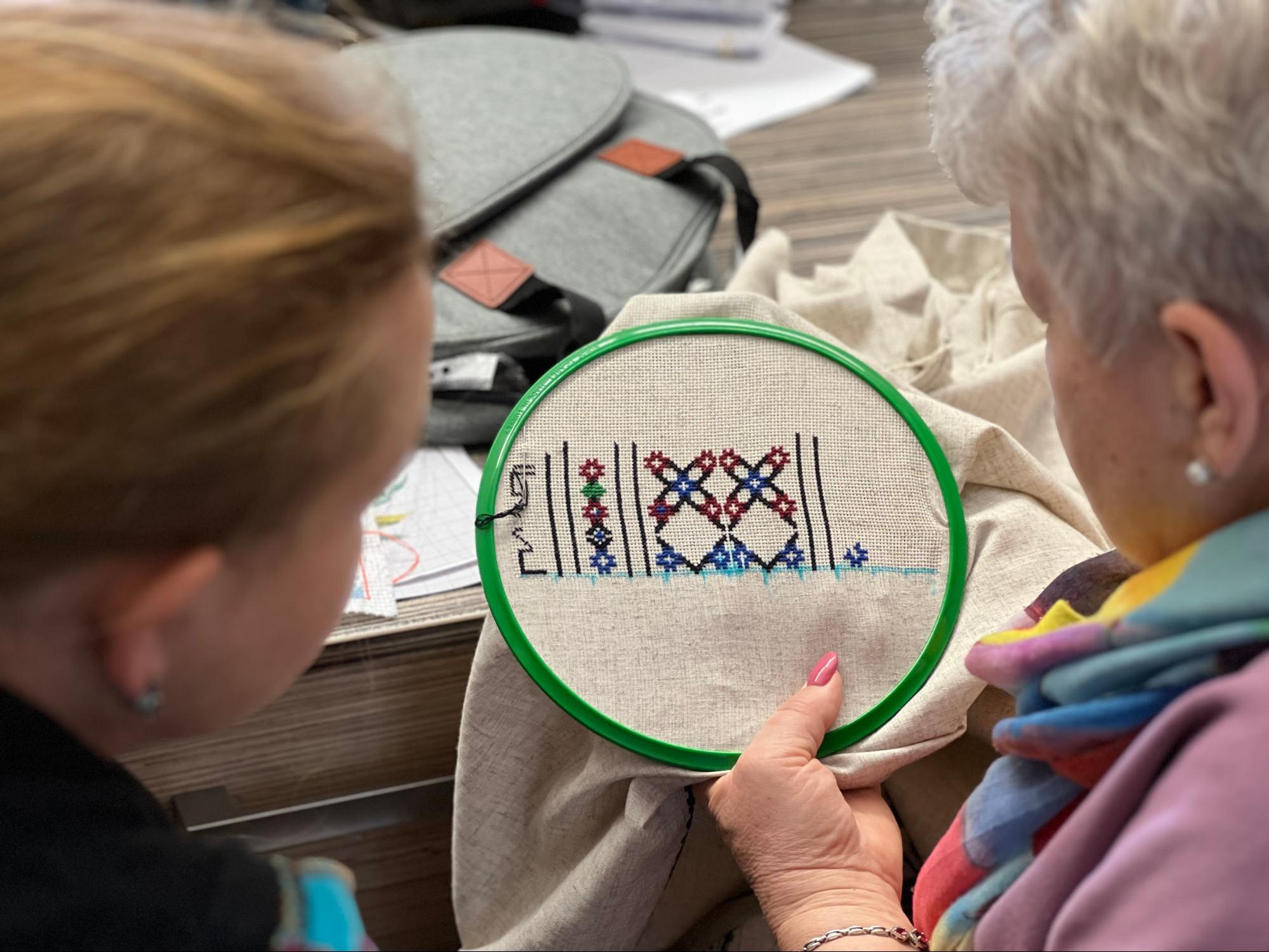
The embroidery club is led by a Ukrainian woman from Enerhodar, a southeastern Ukrainian city home to the Zaporizhzhia Nuclear Power Plant, now occupied by Russian forces. Photo from the Ukrainian House archive
According to communication manager Kateryna Yerska, volunteers come to the center every week looking for opportunities to share their knowledge and talents. For example, a fitness instructor from Odesa conducts classes three times a week, and several yoga instructors also hold sessions. Various craftspeople offer master classes, from making jewelry to photography, embroidery, and other crafts.
"Acting workshops, handicraft master classes, meetings with various specialists, and support groups of all kinds, including a Ukrainian language conversation club for those transitioning to it — it's hard to list everything that people come up with to organize something for fellow country people. Now I'm looking at the schedule for April — next week, a nutritionist will give a lecture. Then, a culinary specialist will teach how to grow homemade sourdough for bread. All this is free," says Kateryna Yerska.
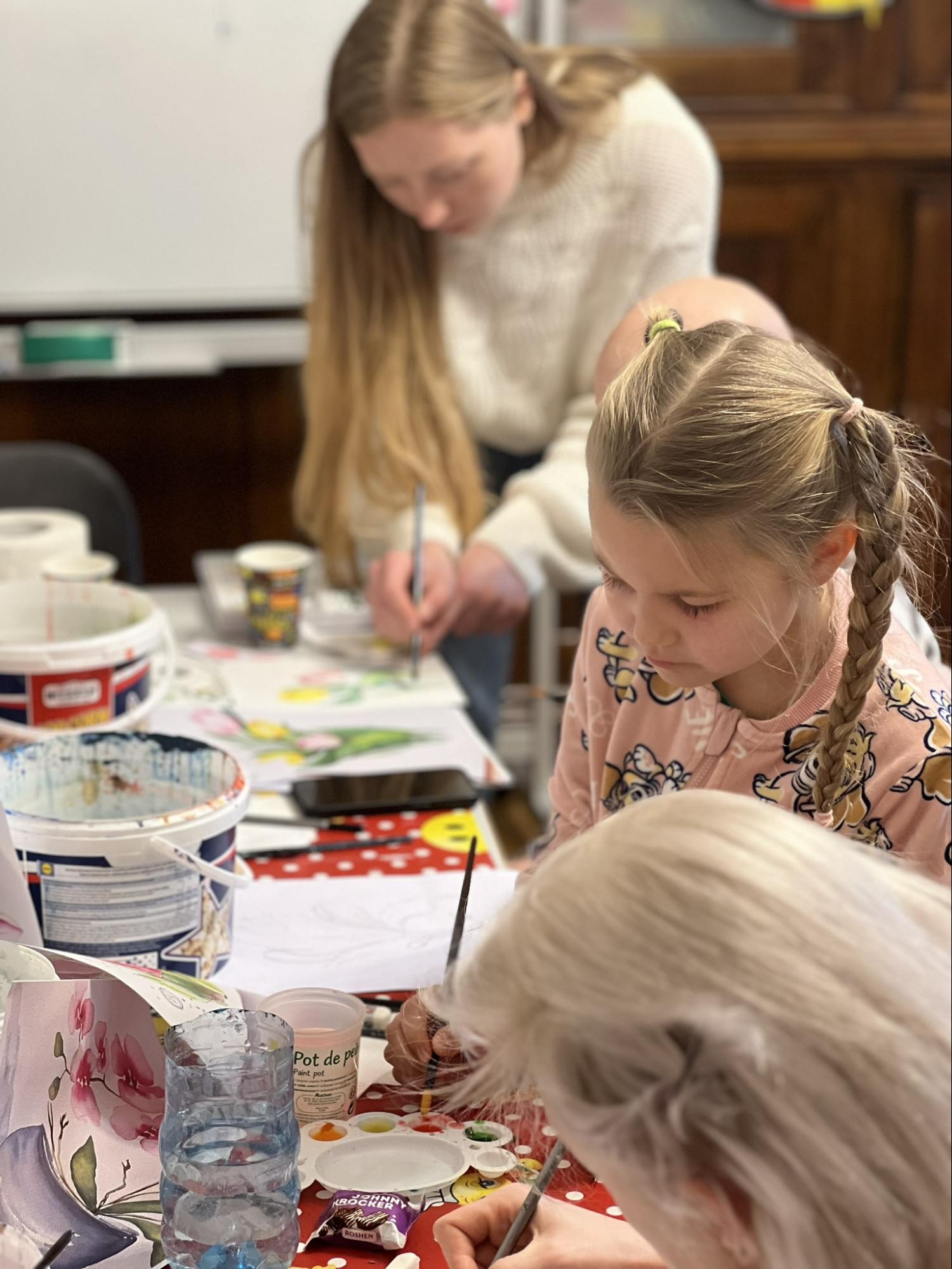
Art therapy session with Anna Denysenko. Photo from the Ukrainian House archive
Does it really work?
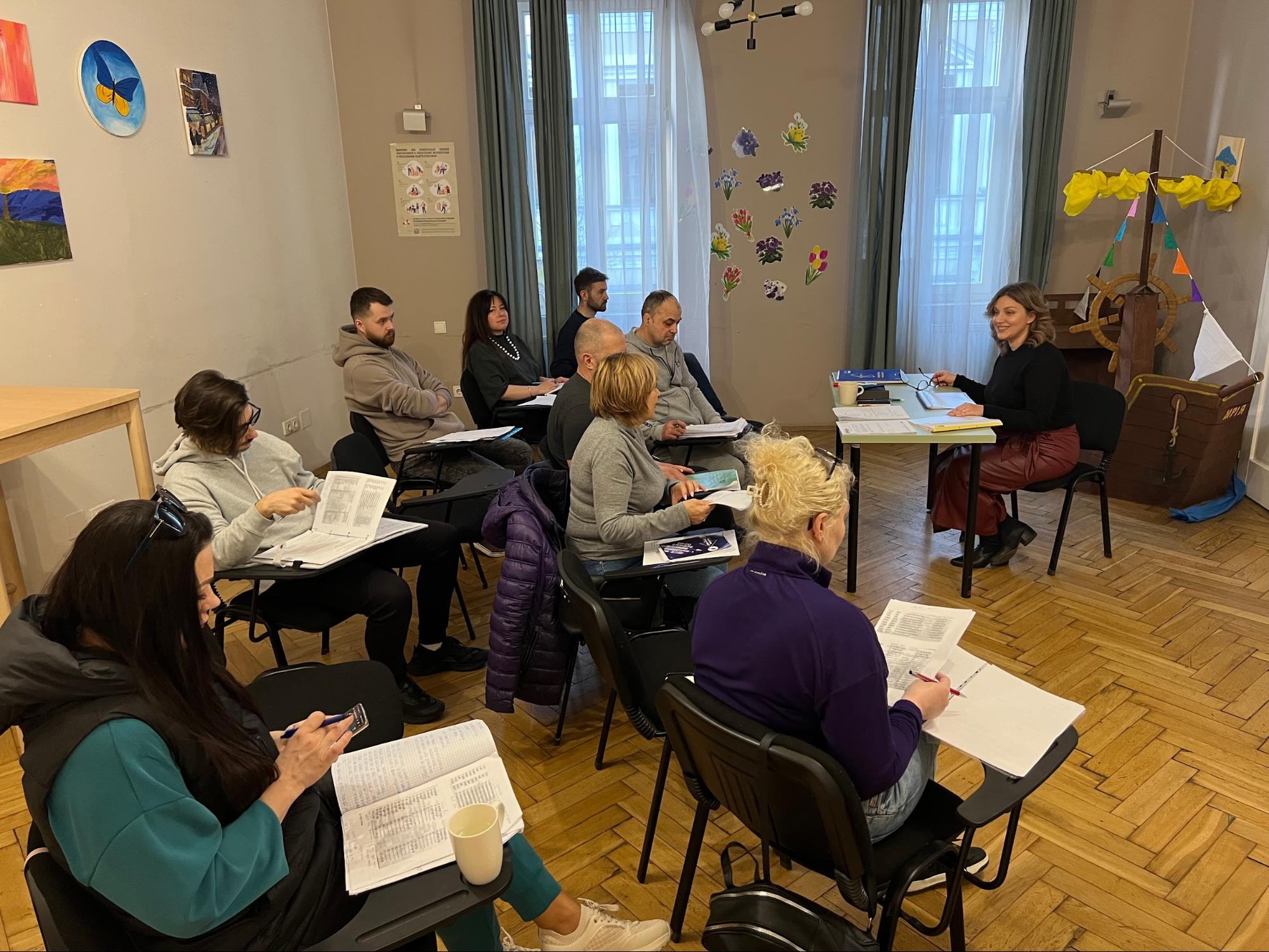
In the Romanian language course. Photo from the Ukrainian House archive
Today, the Ukrainian House in Cluj-Napoca operates seven days a week as the central location for Ukrainian residents. Thanks to partners UNHCR and AICS, its team organizes film screenings, provides humanitarian aid, and teaches English and Romanian at different levels. The Ukrainian House also provides legal and psychological assistance and has a creative center, coworking space, kindergarten, and library. All events and services for Ukrainians are free, and most of the events are created by volunteers.
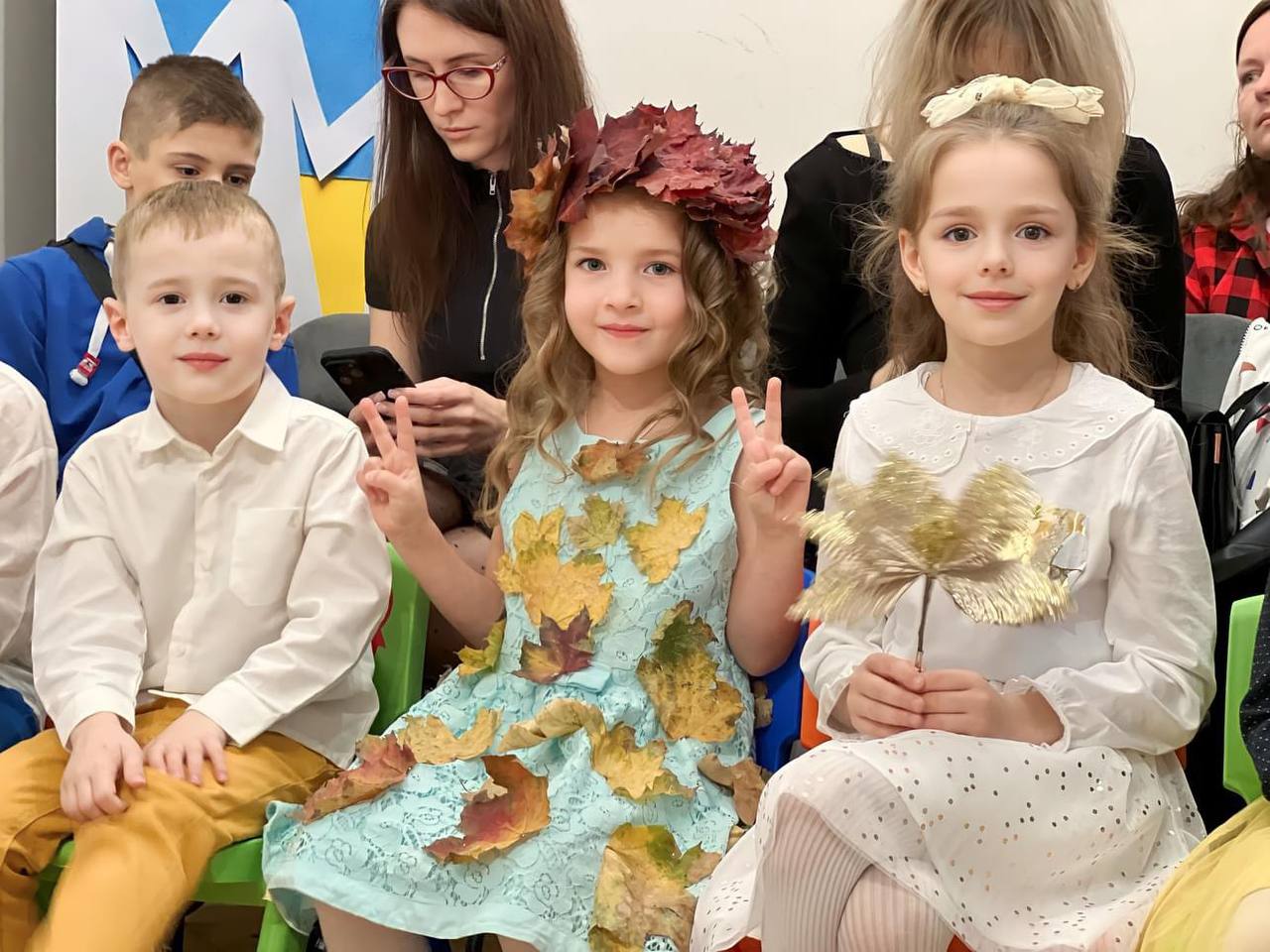
A celebration for children at the Ukrainian House. Photo from the Ukrainian House archive
"I think it is our main feature. We managed to unite not only those who need support but also those who are ready to provide it," says Kateryna Yerska. "So what excites me the most are the people and their enthusiasm, willingness to share knowledge, and support each other. After all, it's quite clear that, for instance, a Sunday knitting club for women is not just about knitting socks. It's about having tea in a quiet, warm room where you can bring your children. It's about communication, memories, and hopes."
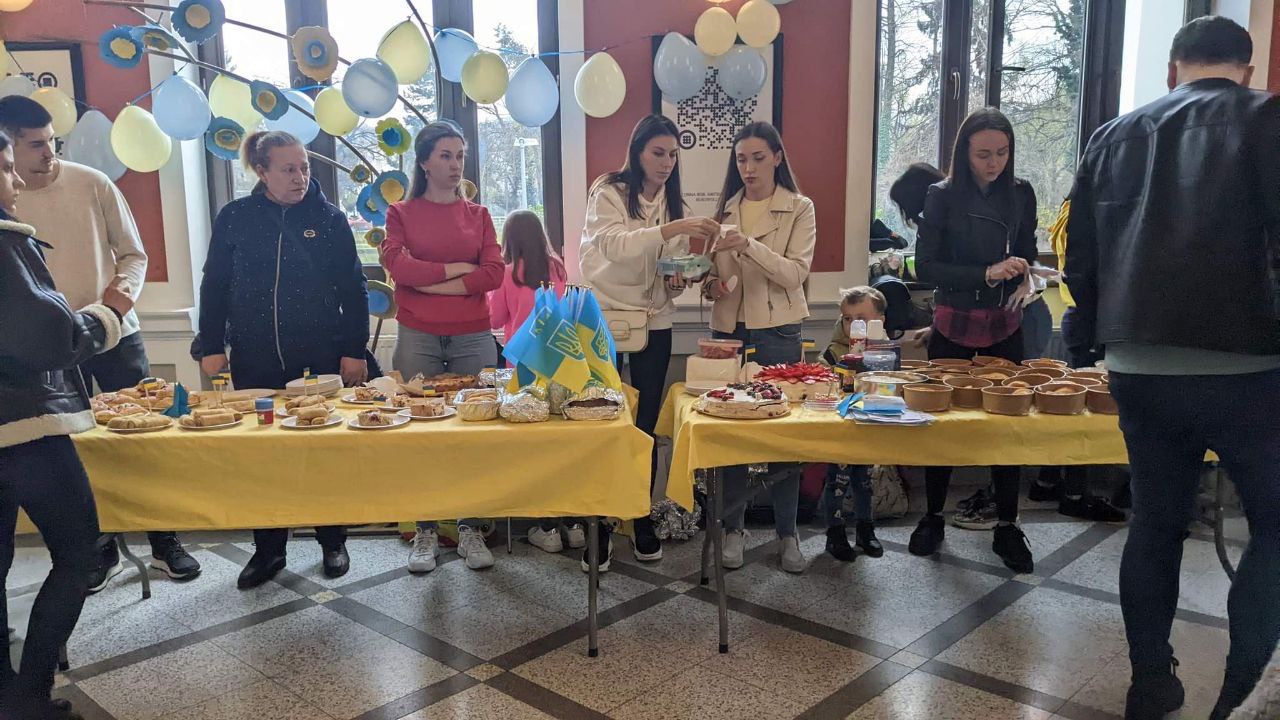
The For Ukraine! Fair. Photo from the Ukrainian House archive
The Ukrainian House, which both Ukrainians and locals visit, has a community on various social media platforms, and activists and volunteers always post news about themselves in city groups. It also contributes to local events, like the main city festival, "Days of Cluj." For the third year, Ukrainians prepare to participate in the fest. Last year, children opened the gala concert with the city mayor, and Ukrainian goods and services were presented in all the courts. Most of the participants are permanent residents of the Ukrainian House.
"It seems everyone knows about the Ukrainian House in Cluj," says Kateryna Yerska with pride.
Even more helpful solutions!
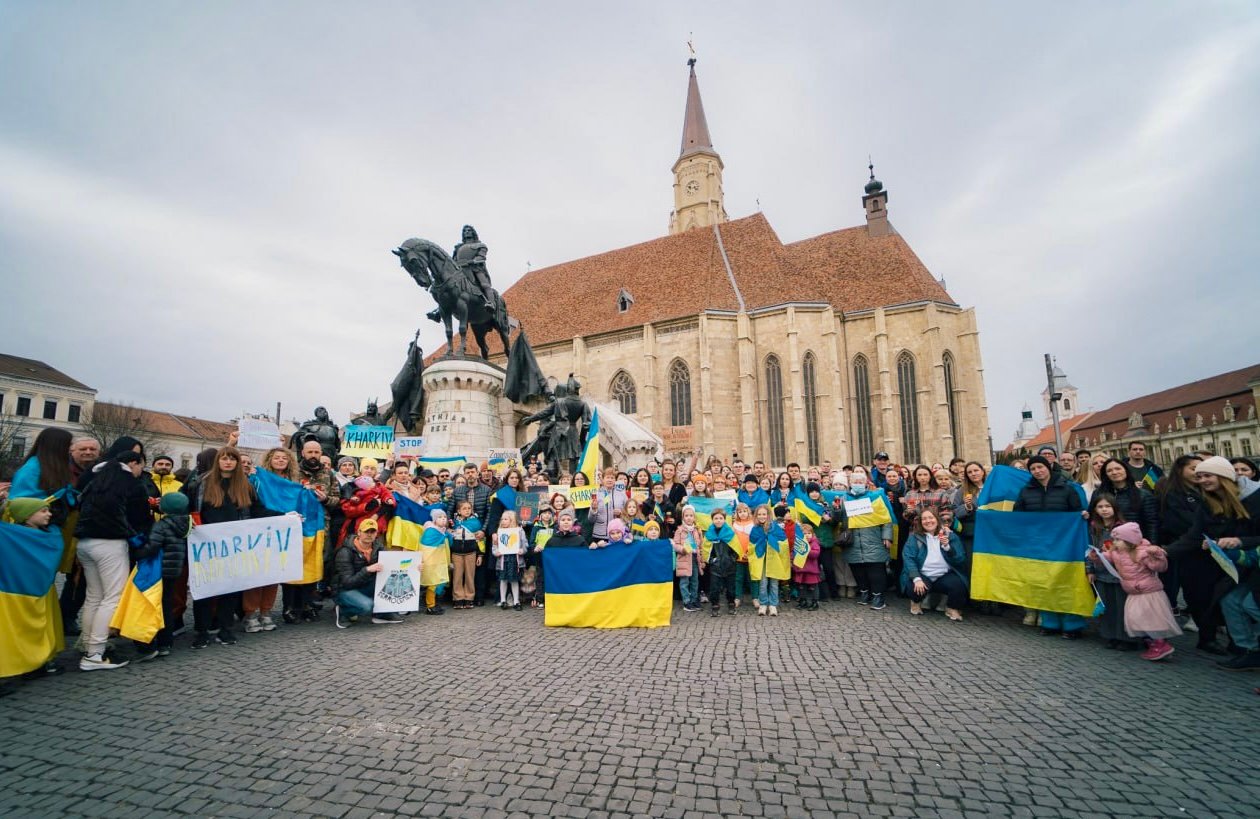
The Ukrainian rally in Cluj-Napoca on February 24, 2024, which was the second anniversary of Russia's full-scale war. Photo from the Ukrainian House archive
Several times a year, the Ukrainian community holds city rallies, including on Ukraine Independence Day on August 24 and the anniversary of Russia's full-scale war on February 24. The meeting location is always the same—the central square of the city. Adults and children come there in national costumes, with flags, flowers, and blue and yellow stickers on their cheeks.
"These are very touching and important events for everyone. They show us that there are many of us and that we all have each other," says Kateryna Yerska.
This year, a memorial rally was held by a young student couple who are chat admins of the Ukrainian House on social media. He's from Kharkiv, and she's from Kyiv. A little girl from Chernihiv played the Ukrainian anthem on the cello. People held posters with the names of their hometowns. Kateryna says it was difficult for adults and children to hold back tears.
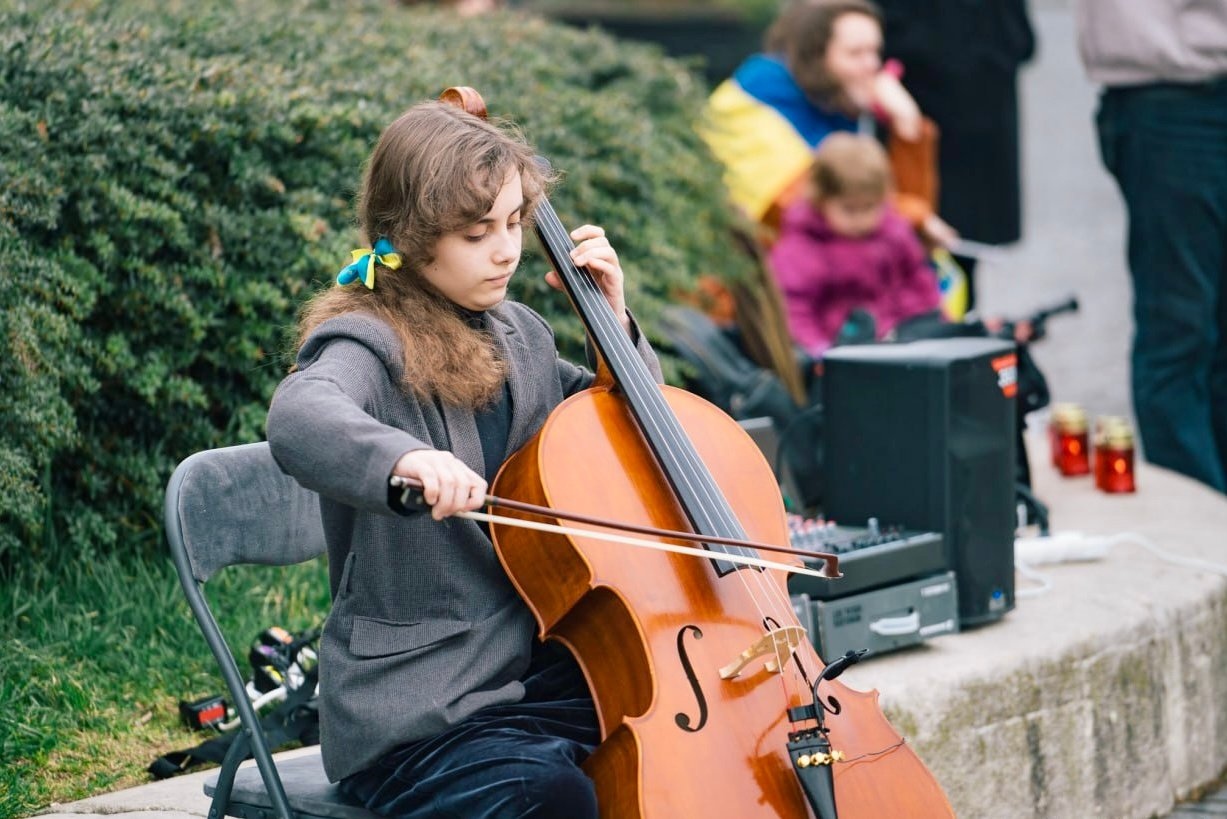
The girl from Chernihiv plays the Ukrainian Anthem at the rally in Cluj-Napoca. Photo from the Ukrainian House archive
At the rally on February 24, a Kharkiv native, Robert, said: "The temporary distance from the Motherland does not diminish our connection with it. On the contrary, it strengthens our desire to help and contribute to its development. We must move forward, but this does not mean we should leave our lives in peaceful Ukraine in the past. It means that we will build the peaceful Ukraine of the future using the best experience we gained here and the memory we carry within us."


